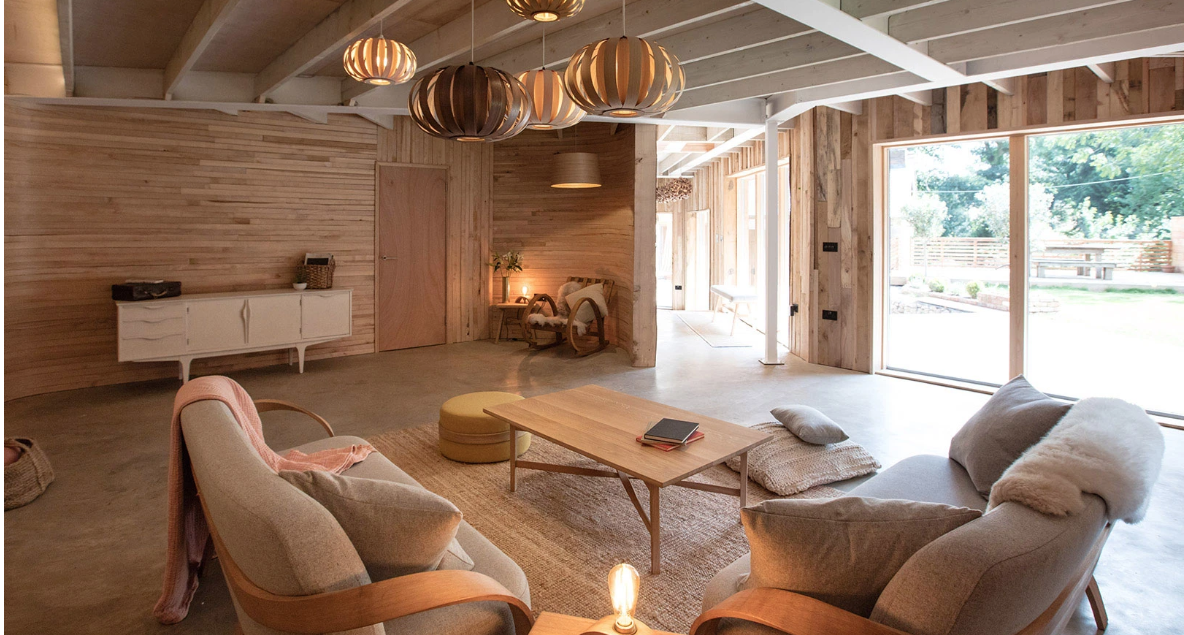Isn’t it surreal to read statistics / articles about how badly our planet is doing? It’s true to say lifestyles are complex and it’s hard to have zero impact. It’s hard to battle against the need for constant change in tastes for consumers. As for the renovation / interior design industry, it’s as bad or perhaps worse than others.
There’s such a long way to go to make things right. It wqs great this Christmas to witness a much bigger movement towards buying less. We read that everyone doing a bit could still lead to a little more improvement everywhere. A good place to be, as with this comes momentum.
People will always need to want to move house, into somewhere bigger, or downsize, or relocate… it’s the way we live. And with that people will sometimes (often) need (want) new products.
We aim to always be in the business of creating homes to love and as part of that make choices with love about products and materials. It’s not possible to do everything. Dropping the guilt and keep doing what you can apply to the interior design industry too.
Ways to make good choices in your renovation projects
Does it need to be brand new? We source a lot of products from places like Ebay, Vinterior, and 1stidbs and come up with some preloved gems which can make a room come together. There are some great apps which help us make these choices.
The sharing economy is getting stronger. Particularly in the art world. A local example is The Bristol Print Club where you can hire artwork and enjoy them for a little while before passing them. Make your home into an art gallery! Another example is Harth, just started, where you can ret furniture by the month. How cool is that? Creating a home can definitely be about using what is already in the world.
Buy from smaller set-ups as opposed to chains. Go to Etsy, or local crafts people, or smaller local shops where products are likely to have touched less parts of a manufacturing chain and use materials which are a little closer to nature.
Choose who you give your money to. If you are making big purchases, or perhaps replacing something, find out what happens to the old items. Are any parts of them recycled? How are the new ones made? Do they have good policies about transport or where their goods come from? How do they look after their people?
Who does it well? There’s a brilliant new resource created by Kate Watson Smyth, interiors journalist / consultant @Madaboutthehouse which is a fab starting point for anyone wanting to find suppliers who act sustainably.
Let yourself fall in love with paint, fabric, furniture… This will make products emotionally durable, this prolonging their life. It’s about avoiding buying things which are just ‘ok-ish’ as they will likely just get processed before their natural life is up. If you buy with love you’ll probably want to keep it until it falls apart (and then fix it. See below).
Choose items which are timeless. Ceramics, glass, crystal, things which an last forever. It is totally possible to avoid things which are fashionable just for a moment. We find that even looking back to the past for inspiration puts us in the mind of holding onto / improving existing things.
Rather than take old furniture to tips, charities like the British Heart foundation will often take it away for you. Wouldn’t it be better for someone to be using it? It could be treasure to someone. If it’s not recyclable, don’t take it to the ‘general waste’ section at the tip. It would be an empty feeling.
Fix things ! Our relationship with products has changed and things have been manufactured and sold as more disposable for a while now. It can be fun to fix and repair, tinker around, make anew. Even the way our 4 year old makes beautiful craft with recycling at school is inspiring.
Second hand shops… Great for inspiration. Put aside some time to look around as part of your search. There are loads around and you just don’t know what you’ll find. Here’s a good list for Bristol we wrote a few months ago (and I have just updated).
One really big thing we can do is to ask for change. If you aren’t happy with an organisation’s efforts in minimising their footprint, tell them, make it impossible for them to ignore. Some companies are taking out plastic entirely, using greener vehicles, choosing other greener companies as partners, working only within the UK.
The biggest change must come from any businesses involved; retailers, manufacturers, builders, designers… everyone, to take more responsibility to find opportunities to reduce impact on the planet It seems painfully slow sometimes but we will get there, we hope.

